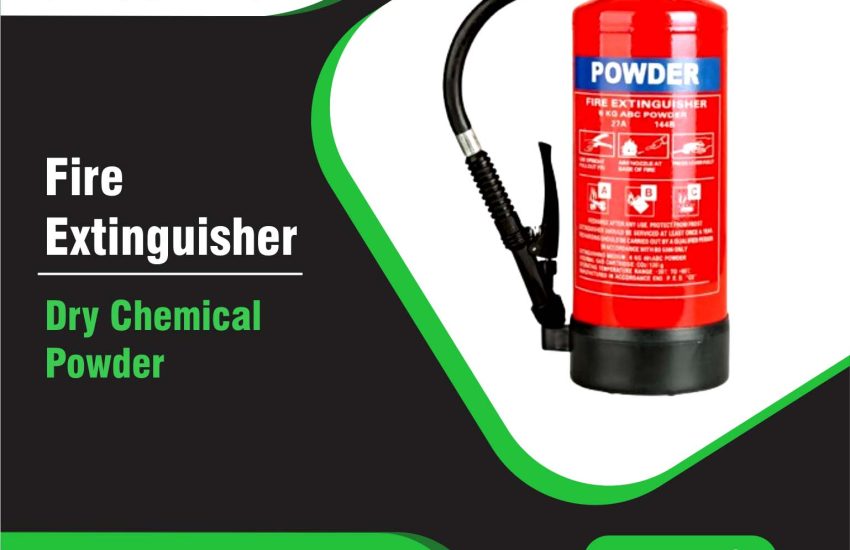Dry Chemical Powder Specifications Types and Applications Dry chemical powder is an essential component in firefighting, commonly used in fire extinguishers and fire suppression systems. It works by interrupting the chemical reaction of a fire, effectively neutralizing flames and preventing fire spread. Available in various formulations, dry chemical powders are versatile, easy to store, and highly effective in both industrial and residential settings.
In this article, we will explore the specifications of dry chemical powders, their types, key features, and their applications.
What is Dry Chemical Powder?
Dry chemical powder, often referred to as dry powder fire extinguishing agent, is a non-conductive substance primarily used for firefighting. It is typically made from a combination of chemicals like sodium bicarbonate, potassium bicarbonate, ammonium phosphate, or monoammonium phosphate. These chemicals work by disrupting the chemical reaction within the fire triangle—fuel, oxygen, and heat—ultimately preventing the fire from reigniting.
Types of Dry Chemical Powder
There are two main types of dry chemical powders, each suited to specific types of fires:
- ABC Dry Chemical Powder:
- Specifications: Contains monoammonium phosphate as its active ingredient. It is effective against Class A (ordinary combustibles), Class B (flammable liquids), and Class C (electrical) fires.
- Applications: Used in multi-purpose fire extinguishers for both residential and industrial firefighting.
- Key Features: Non-toxic, easy to clean, and provides quick suppression.
- BC Dry Chemical Powder:
- Specifications: Composed of sodium bicarbonate or potassium bicarbonate. This powder is effective against Class B and Class C fires but is not recommended for use on ordinary combustibles (Class A).
- Applications: Primarily used in industrial applications where flammable liquids and electrical hazards are a concern.
- Key Features: High resistance to moisture, effective against flammable liquids.
- Special Dry Chemical Powder:
- Specifications: Tailored formulations for specific fire hazards, such as metal fires (Class D), lithium-ion battery fires, or fires involving specific chemicals.
- Applications: Used in specialized industries, including aerospace, automotive, and chemical manufacturing.
- Key Features: Customized for high-risk environments, effective against unique fire types.
Specifications of Dry Chemical Powder
The specifications of dry chemical powders are based on their chemical composition, fire-class ratings, and performance characteristics. Here are some of the most important specifications to consider when selecting dry chemical powder:
- Chemical Composition: The powder’s ingredients determine its fire-fighting capabilities. Common ingredients include ammonium phosphate (for ABC), sodium bicarbonate (for BC), and potassium bicarbonate.
- Particle Size: The powder’s particle size affects its spreadability and effectiveness. A fine powder provides better coverage and quicker suppression.
- Fire-Class Ratings: Always check the fire-class rating to ensure the powder is suitable for the type of fire you are dealing with. ABC-rated powders are ideal for general use, while BC-rated powders are more effective in industrial and liquid-based fires.
- Capacity: The amount of powder in a fire extinguisher or suppression system is specified in pounds or kilograms. The capacity determines the extent of fire coverage.
- Temperature Range: Different dry chemical powders can operate at various temperature ranges. Some are designed to work in extremely high or low temperatures.
Key Features of Dry Chemical Powder
- Effective Fire Suppression: Dry chemical powders are highly effective in extinguishing fires by disrupting the combustion process.
- Non-conductive: They are electrically non-conductive, which makes them safe to use on electrical fires.
- Quick Action: Dry powders act quickly to suppress flames, offering immediate protection in emergency situations.
- Easy Storage: Dry chemical powder is stable and has a long shelf life when stored properly. Fire extinguishers containing dry powder can be stored for extended periods without degradation.
- Versatility: Dry chemical powders are suitable for a wide range of fires, making them ideal for both home and industrial applications.
Applications of Dry Chemical Powder
- Residential Use:
- Dry chemical powder fire extinguishers are widely used in homes for protection against kitchen fires, electrical fires, and small grease fires. ABC fire extinguishers are the most common in household settings.
- Industrial Applications:
- In factories, chemical plants, and warehouses, dry chemical powders (especially BC and ABC) are used to suppress fires caused by flammable liquids, electrical systems, and hazardous materials.
- Automotive Industry:
- Dry chemical powders are often used in automotive fire extinguishers, particularly for electrical fires and flammable liquid fires in vehicles.
- Marine Applications:
- Ships and offshore platforms rely on dry chemical powder fire extinguishers to combat a variety of fire hazards, especially those involving flammable liquids and electrical systems.
- Aerospace Industry:
- Dry chemical powder fire suppression systems are critical in aerospace applications, where fires can occur from engine fuel, electrical systems, or other hazardous materials.
- Military and Defense:
- Dry chemical powders are also used in military settings for rapid fire suppression in vehicles, aircraft, and field stations.
Advantages of Dry Chemical Powder
- Effective on Multiple Classes of Fires: Versatile, as it works on a wide range of fire classes (A, B, and C).
- Rapid Suppression: Acts fast to prevent fire spread and minimize damage.
- Ease of Use: Simple to operate and does not require specialized training.
- Low Maintenance: Requires minimal maintenance compared to other fire suppression systems.
Conclusion
Dry Chemical Powder Specifications Types and Applications Dry chemical powder is a versatile, effective, and widely used fire suppression agent. With its ability to handle multiple types of fires, including electrical and liquid-based fires, it is a critical safety tool in both residential and industrial settings. Whether you are looking for a fire extinguisher for home use or a comprehensive suppression system for an industrial facility, dry chemical powder offers an excellent solution.


